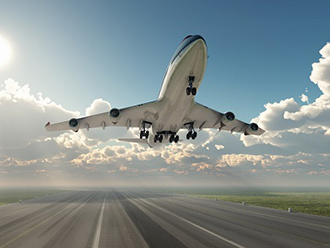 Planes don’t just carry people and luggage. They also haul toilet waste, and exotic mixes of bacteria, from continent to continent.
Planes don’t just carry people and luggage. They also haul toilet waste, and exotic mixes of bacteria, from continent to continent.
The gut waste found in the toilets could point toward larger patterns of bacteria, infectious disease and even microbial resistance, according to a new study published by a Danish team of scientists.
Eighteen flights landing in Copenhagen had their toilets pumped out of raw waste, and the Technical University of Denmark scientists performed “shotgun” DNA sequencing of the germs in the feces.
“Our study provides a first step towards a potential novel strategy for global surveillance enabling simultaneous detection of multiple human health threatening genetic elements, infectious agents and resistance genes,” they said.
Each Scandinavia Airline System plane carries roughly 400 liters of human waste. The subject flights came to Denmark from Bangkok, Beijing, Islamabad, Newark, Kangerlussuaq, Tokyo, Toronto and Washington, D.C., according to the study.
For each flight, three individual half-liter samples were collected. The hazardous loads were brought to a research facility for DNA extraction. Twenty GB of data was analyzed from each sample.
Microbial-resistance genes were found in greater abundance on planes coming from South Asia, as compared to North America, they found.
READ MORE: Can Vaccination, Diagnostics Help to Combat Antibiotic Resistance?
Salmonella enterica and norovirus were detected in greater amounts in South Asia. But Clostridium difficile was most abundant on planes hailing from North America.
“As international airplane flights are known to be a major route of transmissions for infectious diseases, airports have previously been suggested as potential control points for limiting the spread of disease outbreaks,” the scientists said. “In 2012 approximately 1.11 billion passengers traveled on an international flight; a number expected to increase beyond 1.45 billion in 2016. Thus, airports offer a potentially optimal site for global surveillance.”
Future analysis could also include complete sequencing for RNA viruses, they added.
International flights, if thus monitored regularly, could help combat drug resistance, the scientists added. Antimicrobial resistance is a global objective declared earlier this year by the World Health Organization.
Filed Under: Genomics/Proteomics




